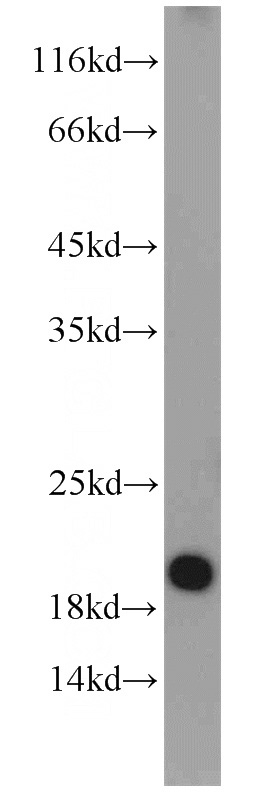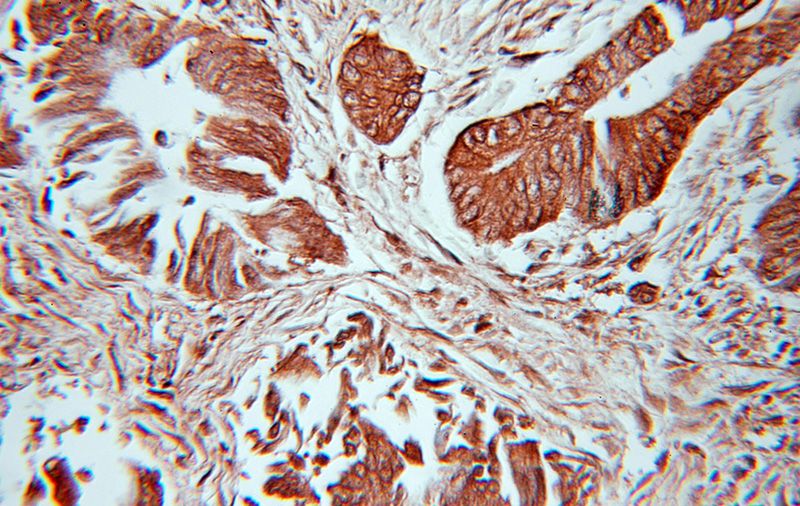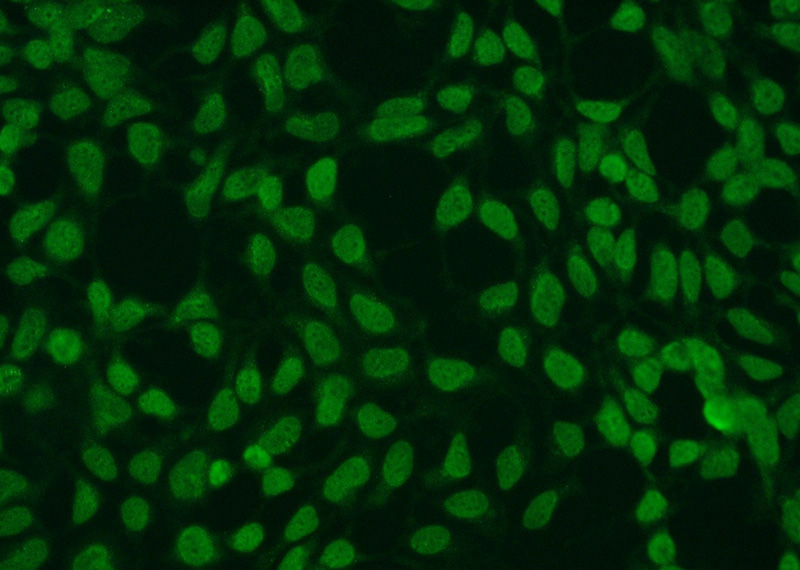-
Product Name
SUMO2/3 antibody
- Documents
-
Description
SUMO2/3 Rabbit Polyclonal antibody. Positive IF detected in HEK-293 cells. Positive IHC detected in human colon cancer tissue. Positive WB detected in HEK-293 cells, A549 cells, Jurkat cells, Recombinant protein. Observed molecular weight by Western-blot: 18-20 kDa
-
Tested applications
ELISA, WB, IHC, IF
-
Species reactivity
Human,Mouse,Rat; other species not tested.
-
Isotype
Rabbit IgG
-
Preparation
This antibody was obtained by immunization of SUMO2/3 recombinant protein (Accession Number: NM_006937). Purification method: Antigen affinity purified.
-
Clonality
Polyclonal
-
Formulation
PBS with 0.1% sodium azide and 50% glycerol pH 7.3.
-
Storage instructions
Store at -20℃. DO NOT ALIQUOT
-
Applications
Recommended Dilution:
WB: 1:500-1:5000
IHC: 1:20-1:200
IF: 1:20-1:200
-
Validations

HEK-293 cells were subjected to SDS PAGE followed by western blot with Catalog No:115837(SUMO2/3 antibody) at dilution of 1:1000

Immunohistochemical of paraffin-embedded human colon cancer using Catalog No:115837(SUMO2/3 antibody) at dilution of 1:100 (under 10x lens)

Immunofluorescent analysis of HEK-293 cells using Catalog No:115837(SUMO2/3 Antibody) at dilution of 1:50 and Alexa Fluor 488-congugated AffiniPure Goat Anti-Rabbit IgG(H+L)
-
Background
Ubiquitin is most famous for its function in targeting proteins for degradation by the 26S proteasome, ubiquitin needs to be attached to a substrate in chains (polyubiquitylation) before being recognized by proteasome. Similarly, SUMO (small ubiquitin-related modifier) can be linked to substrates in chains (polysumoylation), SUMO modification has been implicated in many important cellular processes including the control of genome stability, signal transduction, targeting to and formation of nuclear compartments, cell cycle and meiosis. There are 4 confirmed SUMO isoforms in human, SUMO-1, SUMO-2, SUMO-3 and SUMO-4. SUMO-2 and SUMO-3 are nearly identical but are distinct from SUMO-1. SUMO2/3 conjugation was recently widely involved in neuroprotective activities. A substitution (M55V) of SUMO4 was strongly associated with the pathogenesis of type 1 diabetes (T1D) involving NF kappa B related mechanisms.
Related Products / Services
Please note: All products are "FOR RESEARCH USE ONLY AND ARE NOT INTENDED FOR DIAGNOSTIC OR THERAPEUTIC USE"
